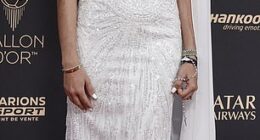Elaine Merk Binder, one of the last surviving actors who played a Munchkin in The Wizard of Oz, has died at the age of 94.
The child star from Colorado had turned eight years old when she filmed the beloved 1939 film, making her one of eight children who danced and sang as part of the Munchkin ensemble.
Elaine was one of the innocent children showcasing her talents in the film, but her fellow castmates tainted the Munchkin’s legacy due to their predatory, ‘naughty’ behaviour on set, adding to the production’s scandalous legacy.
In The Wizard Of Oz, the kindly little people who lived at the start of the Yellow Brick Road were loyal friends of young Dorothy, the role that made Judy Garland famous.
Writing in his 2017 biography, Sid Luft, Garland’s third husband, revealed that the attention of some of the 124 actors who were cast as Munchkins was not always so innocent.
Luft, a Hollywood producer who was credited with keeping Garland working during their 13-year marriage, describes how she once told him she had been repeatedly molested by them during the eight gruelling months it took to make the spectacular 1939 film.
‘The men were naughty. They thought they could get away with anything because they were so small,’ Luft wrote in Judy And I, a book he never finished before his death in 2005.
An assistant director was assigned to keep them in line and ensure that, if they ended up in jail, they were speedily bailed so they wouldn’t miss their calls on set.

One of the last surviving Munchkins, Elaine Merk Binder, has died aged 94 – but not all actors (pictured) were as innocent as her

The child star (pictured during her childhood) from Colorado joined the Wizard of Oz cast at the age of eight
Still wearing their make-up, Munchkins would retire after a long day’s work to the bars of Culver City, near Hollywood, and would get horribly drunk, Luft recalls.
‘They were disorderly as hell, yelling and screaming. The next day, on the set, hung-over, they would make Judy’s life miserable by putting their hands under her dress,’ he added.
Judy was just 4ft 11in and young-looking for her 16 years when she played the child Dorothy. Her breasts were strapped down to hide her burgeoning figure and she struggled with what he called the ‘little girl/woman dilemma’ of men treating her with disrespect, said Luft.
‘The Munchkins, of course, were close to her in size and couldn’t resist teasing her, making her life a misery,’ he wrote. ‘The men were 40 or more years old, and there was Judy with boyfriends, and feeling sophisticated at 16.’
Luft’s startling revelations could be dismissed as standard – if uniquely disturbing -Tinseltown lechery if they didn’t reopen one of the film industry’s most hotly disputed controversies.
Forget the Rat Pack and generations of bed-hopping, pill-popping matinee idol hellraisers. Were the Munchkins actually Hollywood’s baddest boys?
Laughable as that might sound to anyone who has seen their squeaky-voiced, childlike antics in the film, this astonishing theory has been advanced for years.
The tales are endless and lurid: holed up in a hotel with only each other for months on end, the Munchkins indulged in Bacchanalian orgies and heavy drinking bouts, swinging from rafters, gambling illegally, getting involved in prostitution and generally behaving so badly that police had to be stationed on every floor of their hotel.

Pictured: Elaine Merk Binder, one of the last surviving actors who played a Munchkin in The Wizard of Oz
The tales were so awful that they even spawned a rumour that one of the Munchkins – crossed in love – actually committed suicide on the set.
Garland herself alluded to their appalling behaviour, although she never claimed she was the target. ‘They were drunks. They got smashed every night and the police used to scoop them up in butterfly nets,’ she recalled.
The butterfly net was a reference to reports that some of the actors staggered on to their hotel roof and had to be caught in nets laid out below them.
Garland said when she went on a date with one of them, taking no chances by bringing her mother, the Munchkin told her: ‘Fair enough, two broads for the price of one.’ Others connected to the production had even less savoury recollections.
‘We had a hell of a time with those little guys,’ said Mervyn LeRoy, the film’s producer. He described how, when filming finished each day, ‘there were fights and orgies and all kinds of carryings on’.
He added: ‘Almost every night, the Culver City police had to rush over to the hotel to keep them from killing each other . . . we had to have police on just about every floor.’
He wondered patronisingly whether they ‘had little inhibitions to go with their little stature’.
Bert Lahr, who played the Cowardly Lion, wrote in his memoir: ‘Many of the Munchkins made their living by panhandling, pimping and whoring. Assistants were ordered to watch the crew of midgets, who brandished knives, and often conceived passions for other, larger [studio] personnel.’

Elaine was just eight-years-old when she filmed the beloved 1939 movie. She was one of the eight children who danced and sang as part of the Munchkin ensemble

Speaking about her 1938 audition for MGM, Elaine recalled: ‘For me it was scary. It was my first big call for girls from a major studio’
It’s hardly a surprise that some of the Munchkins, who couldn’t believe their luck in coming to Hollywood, had brought some of their bad old ways with them.
The truth is that actors had limited career opportunities, especially during the Depression of the Thirties, and they often resorted to crime or begging to make ends meet.
Female Munchkins were accused of propositioning studio electricians, while one notorious Munchkin, nicknamed the Count, was never sober – paying a terrible price for his drunkenness.
‘We heard a whining sound coming from the men’s room,’ said Jack Dawn, the chief make-up artist on the movie. ‘He had got plastered during lunch, fallen in the toilet bowl and could not get out.’
It didn’t help matters that many of the other members of the production team treated the actors like children.
The toilet bowl debacle, for instance, prompted an order that big people should accompany the Munchkins to the lavatory.
Meanwhile, a studio school teacher once tried to round up a group of the actors for class, mistaking them for youngsters.
Wardrobe mistresses were also shocked to discover that the ‘shy boys’ they were helping to undress were actually fully grown men.
‘They were adults. They did not like us touching them or lifting their make-up chairs,’ said Mr Dawn. ‘They insisted on climbing up by themselves.’
Given that they were treated as juveniles, does it sound far-fetched that some Munchkins were anxious to impress that they were ‘grown-ups’ in other, less salubrious, ways?
It has become fashionable in recent years to dismiss the stories about Munchkin madness as ‘heightist’ bigotry – a mixture of exaggeration and invention cooked up by people who were shocked to discover that the actors behaved just like them.
Surviving Munchkin actors don’t dismiss the stories out of hand, and admit there was a certain amount of partying.
However, they insisted a handful of ‘lush hounds’ had got them all a bad reputation. Those rotten apples certainly included the permanently drunk Charles Kelley, who turned up on set packing two loaded pistols after hearing that Charlie Becker, who played the mayor of Munchkinland, had been making eyes at his wife, Jessie, also a Munchkin.
He threatened to murder Becker and was thrown off the production for anti-social behaviour.
A fact every Munchkin would happily admit was true is that they were badly paid. They got just $50 a week (about $900 today) – more than they could have expected outside Hollywood but still little more than a third of what Terry, the Cairn terrier who played Dorothy’s dog, Toto, was paid.
It didn’t help that half their earnings were pocketed by their cut-throat manager, Leo Singer, an impresario who ran a large troupe of touring actors, after effectively buying them from their parents.
MGM, which made the film, was determined the Munchkins shouldn’t be played by children. Singer won the contract to provide the film studio with its Munchkin army.
Most were German, and a high proportion had recently fled the country to escape the Nazis’ eugenics programme of killing off imperfect humans.
They were billeted separately from the rest of the Oz cast in their own hotel where they slept sideways three to a bed. They were ferried to and from filming like children.
None of the Munchkin actors has ever had a bad word to say about Garland, who, whatever her problems with gropers, gave each of them a signed photo and box of chocolates when shooting finished.
That said, within two years, the pressures of adolescent stardom, and who knows what else, had sent her seeking help from a psychiatrist.
When The Wizard Of Oz was released in Britain in 1940, the censors gave it a certificate ‘for adults only’. Critics derided the decision, but perhaps the censors knew something they didn’t about all those adorable little people lining the Yellow Brick Road.
On Monday, Elaine Merk Binder’s death was confirmed by her daughter, Annette Phillips. No cause of death has been revealed.
She can be seen during the performances of Come Out, Come Out and Off to See the Wizard as one of eight dancers in a pavilion.
Speaking about her 1938 audition for MGM, Elaine recalled: ‘For me it was scary. It was my first big call for girls from a major studio.’
‘I was relieved when Bud told the dance director, “She’s OK.” I did not have to perform like the others did. And they selected me as one of the eight who would both dance and sing.’
‘We learned later that they had added girls to the Little People because they had the mistaken impression that the Little People were not athletic.’
As a teenager Elaine was offered a contract from Paramount studios but she declined and went on to study at college, graduating with degrees in music and education.
She went on to study computer science and theology, and worked as a computer consultant for USC and First Interstate Bank.









